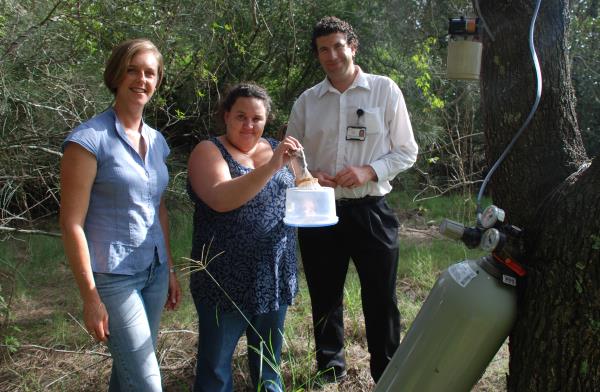
THE North Coast Public Health Unit is reminding residents and visitors to the Mid North Coast to protect themselves from being bitten by mosquitoes which are increasing in numbers as the season progresses.
Senior environmental health officer Kerryn Lawrence said that while it had been a dry summer on the Mid North Coast, recent mosquito trapping had detected mosquitoes infected with both Ross River and Barmah Forest viruses locally.
“It is expected that as the temperature cools the mosquito numbers will start to fall, however, at present mosquito breeding is ongoing and the risk of being bitten is high”, she said.
Ross River and Barmah Forest viruses are common on the NSW north coast and are transmitted by infected mosquitoes that breed in flooded, grassy and swampy areas and around waterways.
On average in each year over the past decade about 500 people living on NSW north coast were diagnosed with either Ross River virus or Barmah Forest virus – in about equal numbers (about 250 cases of each are reported on average each year).
Compared to the NSW average, people living on the north coast are five to eight times more likely to be infected with Barmah Forest virus and three to five times more likely to be infected with Ross River virus.
“During autumn each year we see the highest numbers of people infected with Ross River or Barmah Forest virus, so protecting yourself from mosquitoes at this time of year is particularly important,” Ms Lawrence said.
Steps to avoid being bitten by mosquitoes include:
* When outside cover up as much as possible with light-coloured, loose-fitting clothing and covered footwear.
* Use an effective repellent on all exposed skin. Re-apply repellent within a few hours, as protection wears off with perspiration. The best mosquito repellents contain Diethyl Toluamide (DEET) or Picaridin.
* Light mosquito coils or use vaporising mats indoors. Devices that use light to attract and electrocute insects are not effective.
* Cover all windows, doors, vents and other entrances with insect screens.
* When camping, use flyscreens on caravans and tents or sleep under mosquito nets.

